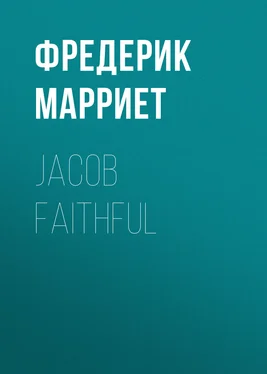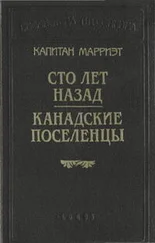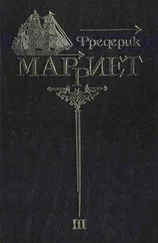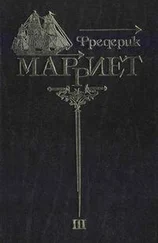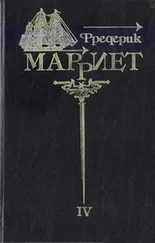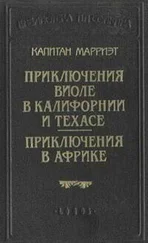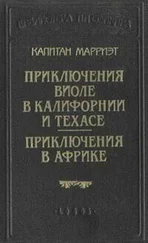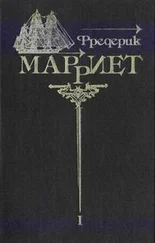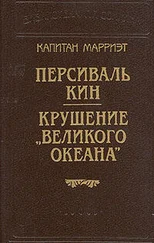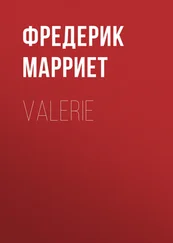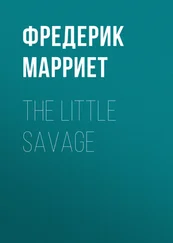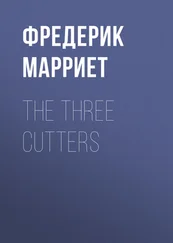Фредерик Марриет - Jacob Faithful
Здесь есть возможность читать онлайн «Фредерик Марриет - Jacob Faithful» — ознакомительный отрывок электронной книги совершенно бесплатно, а после прочтения отрывка купить полную версию. В некоторых случаях можно слушать аудио, скачать через торрент в формате fb2 и присутствует краткое содержание. Жанр: prose_military, literature_19, foreign_antique, foreign_prose, на английском языке. Описание произведения, (предисловие) а так же отзывы посетителей доступны на портале библиотеки ЛибКат.
- Название:Jacob Faithful
- Автор:
- Жанр:
- Год:неизвестен
- ISBN:нет данных
- Рейтинг книги:4 / 5. Голосов: 1
-
Избранное:Добавить в избранное
- Отзывы:
-
Ваша оценка:
- 80
- 1
- 2
- 3
- 4
- 5
Jacob Faithful: краткое содержание, описание и аннотация
Предлагаем к чтению аннотацию, описание, краткое содержание или предисловие (зависит от того, что написал сам автор книги «Jacob Faithful»). Если вы не нашли необходимую информацию о книге — напишите в комментариях, мы постараемся отыскать её.
Jacob Faithful — читать онлайн ознакомительный отрывок
Ниже представлен текст книги, разбитый по страницам. Система сохранения места последней прочитанной страницы, позволяет с удобством читать онлайн бесплатно книгу «Jacob Faithful», без необходимости каждый раз заново искать на чём Вы остановились. Поставьте закладку, и сможете в любой момент перейти на страницу, на которой закончили чтение.
Интервал:
Закладка:
“I perceive that it doth; and am grieved to find that such is the case. Jacob Faithful, thou are convicted of disrespect and of falsehood. Where is Simon Swapps?”
“If you please, sir, may I not defend myself?” replied I. “Am I to be flogged unheard?”
“Nay, that were an injustice,” replied the Dominie; “but what defence canst thou offer? O puer infelix et sceleratus !”
“May I look at those caricatures, sir?” said I.
The Dominie handed them to me in silence. I looked them all over, and immediately knew them to be drawn by Barnaby Bracegirdle. The last particularly struck me. I had felt confounded and frightened with the strong evidence brought against me; but this re-assured me, and I spoke boldly. “These drawings are by Barnaby Bracegirdle, sir, and not by me. I never drew a caricature in my life.”
“So didst thou assert that thou couldst not draw, and afterwards provedst by thy pencil to the contrary, Jacob Faithful.”
“I knew not that I was able to draw when I said so; but I wished to draw when you supposed I was able—I did not like that you should give me credit for what I could not do. It was to please you, sir, that I asked for the pencil.”
“I wish it were as thou statest, Jacob—I wish from my inmost soul that thou wert not guilty.”
“Will you ask Mr Knapps from whom he had these drawings, and at what time? There are a great many of them.”
“Answer, Mr Knapps, to the questions of Jacob Faithful.”
“They have been given to me by the boys at different times during this last month.”
“Well, Mr Knapps, point out the boys who gave them.”
Mr Knapps called out eight or ten boys, who came forward. “Did Barnaby Bracegirdle give you none of them, Mr Knapps?” said I, perceiving that Barnaby was not summoned.
“No,” replied Mr Knapps.
“If you please, sir,” said I to the Dominie, “with respect to the leaf out of my Nepos, the Jacob Faithful was written on it by me on the day that you gave it to me; but the fecit , and the caricature of yourself, is not mine. How it came there I don’t know.”
“Thou hast disproved nothing, Jacob,” replied the Dominie.
“But I have proved something, sir. On what day was it that I asked you for the pencil to draw with? Was it not on a Saturday?”
“Last Saturday week, I think it was.”
“Well, then, sir, Mr Knapps told you the day before that I could draw?”
“He did; and thou deniedst it.”
“How, then, does Mr Knapps account for not producing those caricatures of mine, which he says he has collected for a whole month? Why didn’t he give them to you before?”
“Thou puttest it shrewdly,” replied the Dominie. “Answer, Mr Knapps, why didst thou, for a fortnight at the least, conceal thy knowledge of his offence?”
“I wished to have more proofs,” replied the usher.
“Thou hearest, Jacob Faithful.”
“Pray, sir, did you ever hear me speak of my poor mother but with kindness?”
“Never, Jacob, thou hast ever appeared dutiful.”
“Please, sir, to call up John Williams.”
“John, Number 37, draw near.”
“Williams,” said I, “did you not tell me that Barnaby Bracegirdle had drawn my mother flaming at the mouth?”
“Yes, I did.”
My indignation now found vent in a torrent of tears. “Now, sir,” cried I, “if you believe that I drew the caricatures of you and Mrs Bately—did I draw this, which is by the same person?” And I handed up to the Dominie the caricature of my mother, which Mr Knapps had inadvertently produced at the bottom of the rest. Mr Knapps turned white as a sheet.
The Dominie looked at the caricature, and was silent for some time. At last he turned to the usher.
“From whom didst thou obtain this, Mr Knapps?”
Mr Knapps replied in his confusion, “From Barnaby Bracegirdle.”
“It was but this moment thou didst state that thou hadst received none from Barnaby Bracegirdle. Thou hast contradicted thyself, Mr Knapps. Jacob did not draw his mother; and the pencil is the same as that which drew the rest—ergo, he did not, I really believe, draw one of them. Ite procul fraudes . God, I thank thee, that the innocent have been protected. Narrowly hast thou escaped these toils, O Jacob— Cum populo et duce fraudulento . And now for punishment. Barnaby Bracegirdle, thou gavest this caricature to Mr Knapps; from whence hadst thou it? Lie not.”
Barnaby turned red and white, and then acknowledged that the drawing was his own.
“You boys,” cried the Dominie, waving his rod which he had seized, “you gave these drawings to Mr Knapps; tell me from whom they came.”
The boys, frightened at the Dominie’s looks, immediately replied in a breath, “From Barnaby Bracegirdle.”
“Then, Barnaby Bracegirdle, from whom didst thou receive them?” inquired the Dominie. Barnaby was dumbfounded.
“Tell the truth; didst thou not draw them thyself, since thou didst not receive them from other people?”
Barnaby fell upon his knees, and related the whole circumstances, particularly the way in which the Cornelius Nepos had been obtained through the medium of Mr Knapps. The indignation of the Dominie was now beyond all bounds. I never had seen him so moved before. He appeared to rise at least a foot more in stature, his eyes sparkled, his great nose turned red, his nostrils dilated, and his mouth was more than half open, to give vent to the ponderous breathing from his chest. His whole appearance was withering to the culprits.
“For thee, thou base, degraded, empty-headed, and venomous little abortion of a man, I have no words to signify my contempt. By the governors of this charity I leave thy conduct to be judged; but until they meet, thou shalt not pollute and contaminate the air of this school by thy presence. If thou hast one spark of good feeling in thy petty frame, beg pardon of this poor boy, whom thou wouldst have ruined by thy treachery. If not, hasten to depart, lest in my wrath I apply to the teacher the punishment intended for the scholar, but of which thou art more deserving than even Barnaby Bracegirdle.”
Mr Knapps said nothing, hastened out of the school, and that evening quitted his domicile. When the governors met he was expelled with ignominy. “Simon Swapps, hoist up Barnaby Bracegirdle.” Most strenuously and most indefatigably was the birch applied to Barnaby, a second time, through me. Barnaby howled and kicked, howled and kicked, and kicked again. At last the Dominie was tired. “ Consonat omne nemus strepitu ” (for nemus read schoolroom), exclaimed the Dominie, laying down the rod, and pulling out his handkerchief to wipe his face. “ Calcitrat, ardescunt germani coede bimembres , that last quotation is happy.” (cluck, cluck.) He then blew his nose, addressed the boys in a long oration—paid me a handsome compliment upon my able defence—proved to all those who chose to listen to him that innocence would always confound guilt—intimated to Barnaby that he must leave the school, and then finding himself worn out with exhaustion, gave the boys a holiday, that they might reflect upon what had passed, and which they duly profited by in playing at marbles and peg in the ring. He then dismissed the school, took me by the hand, and led me into his study, where he gave vent to his strong and affectionate feelings towards me, until the matron came to tell us that dinner was ready.
After this everything went on well. The Dominie’s kindness and attention were unremitting, and no one ever thought of caballing against me. My progress became most rapid; I had conquered Virgil, taken Tacitus by storm, and was reading the Odes of Horace. I had passed triumphantly through decimals, and was busily employed in mensuration of solids, when one evening I was seized with a giddiness in my head. I complained to the matron; she felt my hands, pronounced me feverish, and ordered me to bed. I passed a restless night the next morning I attempted to rise, but a heavy burning ball rolled as it were in my head, and I fell back on my pillow. The matron came, was alarmed at my state, and sent for the surgeon, who pronounced that I had caught the typhus fever, then raging through the vicinity. This was the first time in my life that I had known a day’s sickness—it was a lesson I had yet to learn. The surgeon bled me, and giving directions to the matron, promised to call again. In a few hours I was quite delirious—my senses ran wild. One moment I thought I was with little Sarah Drummond, walking in green fields, holding her by the hand. I turned round, and she was no longer there, but I was in the lighter, and my hand grasped the cinders of my mother; my father stood before me, again jumped overboard and disappeared; again the dark black column ascended from the cabin, and I was prostrate on the deck. Then I was once more alone on the placid and noble Thames, the moon shining bright, and the sweep in my hand, tiding up the reach, and admiring the foliage which hung in dark shadows over the banks. I saw the slopes of green, so pure and so fresh by that sweet light, and in the distance counted the numerous spires of the great monster city, and beheld the various bridges spanning over the water. The faint ripple of the tide was harmony, the reflection of the moon, beauty; I felt happiness in my heart; I was no longer the charity-boy, but the pilot of the barge. Then, as I would survey the scene, there was something that invariably presented itself between my eyes and the object of my scrutiny; whichever way I looked, it stood in my way, and I could not remove it. It was like a cloud, yet transparent, and with a certain undefined shape. I tried for some time, but in vain, to decipher it, but could not. At last it appeared to cohere into a form—it was the Dominie’s great nose, magnified into that of the Scripture, “As the tower which looketh towards Damascus.” My temples throbbed with agony—I burned all over. I had no exact notions of death in bed, except that of my poor mother, and I thought that I was to die like her; the horrible fear seized me that all this burning was but prefatory to bursting out into flame and consuming into ashes. The dread hung about my young heart and turned that to ice, while the rest of my body was on fire. This was my last recollection, and then all was blank. For many days I lay unconscious of either pain or existence: when I awoke from my stupor, my wandering senses gradually returning, I opened my eyes, and dimly perceived something before me that cut across my vision in a diagonal line. As the mist cleared away, and I recovered myself, I made out that it was the nose of Dominie Dobiensis, who was kneeling at the bed-side, his nose adumbrating the coverlid of my bed, his spectacles dimmed with tears, and his long grey locks falling on each side, and shadowing his eyes. I was not frightened, but I was too weak to stir or speak. His prayer-book was in his hand, and he still remained on his knees. He had been praying for me. Supposing me still insensible, he broke out in the following soliloquy:—
Читать дальшеИнтервал:
Закладка:
Похожие книги на «Jacob Faithful»
Представляем Вашему вниманию похожие книги на «Jacob Faithful» списком для выбора. Мы отобрали схожую по названию и смыслу литературу в надежде предоставить читателям больше вариантов отыскать новые, интересные, ещё непрочитанные произведения.
Обсуждение, отзывы о книге «Jacob Faithful» и просто собственные мнения читателей. Оставьте ваши комментарии, напишите, что Вы думаете о произведении, его смысле или главных героях. Укажите что конкретно понравилось, а что нет, и почему Вы так считаете.
